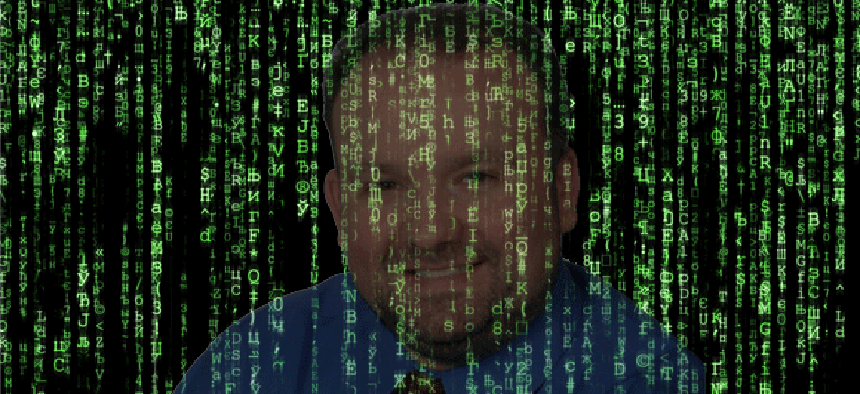Are we all living in a simulated world?


Connecting state and local government leaders
If we create simulated universes, then statistically speaking there's a chance we're already living in one, according to one theory. Is it worth finding out?
Given all that is happening in the world in terms of sequestration and spending cuts, it might not be the best time to advocate government getting onboard with a hugely expensive supercomputing project that has a good chance of delivering no usable data. Then again, it could change everything we know about reality. And it’s not like we don’t currently have the fastest computer in the world with the Energy Department’s Titan.
But first you have to get your head around a concept that initially seems utterly ridiculous. I know that’s what I thought, at first. But then the more I contemplated it, the more intrigued I became.
So here goes: There is actually a chance, logically speaking, that we are all living inside a simulated reality. And one scientist thinks he’s found a way that we can tell.
Now I know everyone is automatically thinking about “The Matrix,” which was a great movie and seemed pretty original, but there actually have been a lot of simulated reality theories, going all the way back to Parmenides, Zeno of Elea and Plato. Wikipedia has an expansive page devoted to all the theories that’s a fascinating read.
To boil it down in my very non-philosophical way, the main theory that puts us all into a simulation is based on three principles.
1) Humans are getting very close to being capable of producing life-like simulations. Look at any modern open-world computer game like Skyrim, and it’s difficult to tell that it’s all simulated and not a real place. How much more would be needed to push it over the top?
2) In the not-too-distant future, humans will not only be capable of making these simulations, but will have the hardware to produce quite a few, if not an infinite number of them, on a large scale, even entire universes. Which leads us to:
3) Either we are the original humans leading up to the creation of all those simulated worlds or we are somehow living inside one of them. In relation to all those simulations, it is, statistically speaking, more likely that we are inside one right now.
Enter University of Bonn physicist Silas Beane, who works simulating nuclear reactions in a grid-like universe created with computers. In an interview with the New Scientist, he said that his best simulations can calculate some of the properties of real things such as the simplest nuclei. But the process also generates artifacts that don't appear in the real world and must be removed. So Bonn believes that mapping a high-energy particle like a cosmic ray and comparing its behavior to an actual cosmic ray could provide evidence of a simulation.
There is another theory that says that a grand-scale computer simulation would be designed to shut down if the residents inside it got to the point where they could make an equal simulation inside of it, in order to prevent computer overload. If that is true, then we're better off with our blissful ignorance than being shut down all together. Or maybe it just means that we are, after all, the real deal.
NEXT STORY: A 3D printer… in a pen?




